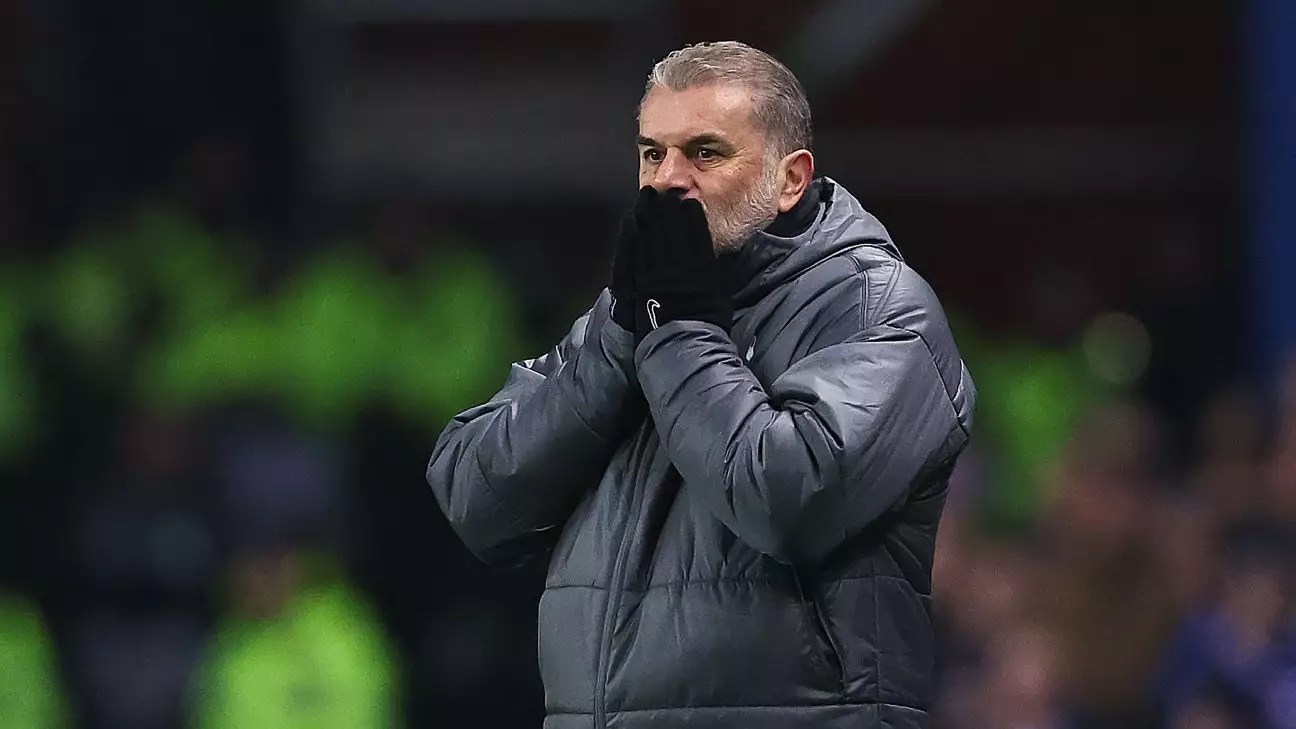In the high-stakes world of professional football, where victories and losses are often measured in milliseconds, the position of a manager stands as one of precarious nature. Recently, Tottenham Hotspur manager Ange Postecoglou shed light on the immense pressures faced by those in managerial roles, asserting that football management is “the hardest job in the world.” His comments, punctuated by the dismissive treatment of recently sacked managers Russell Martin and Gary O’Neil, expose a troubling trend within the sport—one that dehumanizes individuals who dedicate their lives to a profession fraught with volatility.
Postecoglou’s critique does not come out of thin air; it arises from a broader cultural issue where the human element of management is often overshadowed by ruthless pragmatism. The swift sacking of Russell Martin by Southampton shortly after a crushing 5-0 defeat against Spurs exemplifies this harsh reality. Martin’s final game, an occasion laden with emotional weight, was abruptly followed by the cold mechanics of his dismissal—the football world moved on while he was still processing the loss. Postecoglou’s reflections illuminate the lack of respect and compassion in these moments, imbued with a sense of urgency and an alarming disregard for the human beings behind the titles.
In this unforgiving landscape, where coaches are discussed almost like commodities, it raises critical questions about the ethics of personnel management. Postecoglou lamented the erosion of respect for individuals in their roles, highlighting how society has normalized a culture that discards people with alarming speed. This trend extends beyond football—it is indicative of a broader societal pattern where empathy is routinely sacrificed at the altar of performance.
An essential point that emerges from Postecoglou’s discourse is the profound stress associated with a managerial role in football. Unlike conventional roles, where employees may have defined periods of performance evaluation, football managers operate in a realm where their worthiness is assessed weekly—sometimes nightly. Each game serves as an ‘election,’ determining their continued placement in the job. The enormity of this pressure cannot be minimized. As Postecoglou articulated, it’s not just about the tactical failures or successes; it’s about personal livelihoods, families, and a deep-seated commitment that managers pour into their roles.
The immediacy of football culture complicates this landscape further, as the media often amplifies the pressure. Managers find themselves under a spotlight that scrutinizes their every decision, and reports on their potential replacements circulate soon after a defeat. This whirlwind of activity elevates anxiety and strife, not only for the managers but also for their families—those who bear witness to their struggles away from the pitch.
The dialogue initiated by Postecoglou invites a reevaluation of the current culture surrounding football management. It is crucial to foster an environment that encourages respect and understanding—not just for the tactical decisions made on the field but for the individuals dedicating themselves to the team’s success. The acknowledgment of the human condition within this high-pressure context can foster a healthier, more sustainable culture in professional sports.
Football, as a globally cherished pastime, should strive to uphold values that extend beyond the scoreboard. Managers must be recognized not merely as statistics but as vital cogs in the broader machine of the game. Providing space for compassion and reflection within managerial roles could lead to improved mental health and longevity for those brave enough to lead teams into battle week after week.
The insights offered by Ange Postecoglou resonate deeply, serving as a poignant reminder of the necessity of humanity within the profession of football management. It is vital to foster a culture that respects not only the tactical astuteness of managers but also the significant personal sacrifices inherent in their roles. As the season unfolds, both fans and organizations must endeavor to ensure that respect and empathy prevail in the emotionally charged world of professional football.


Leave a Reply